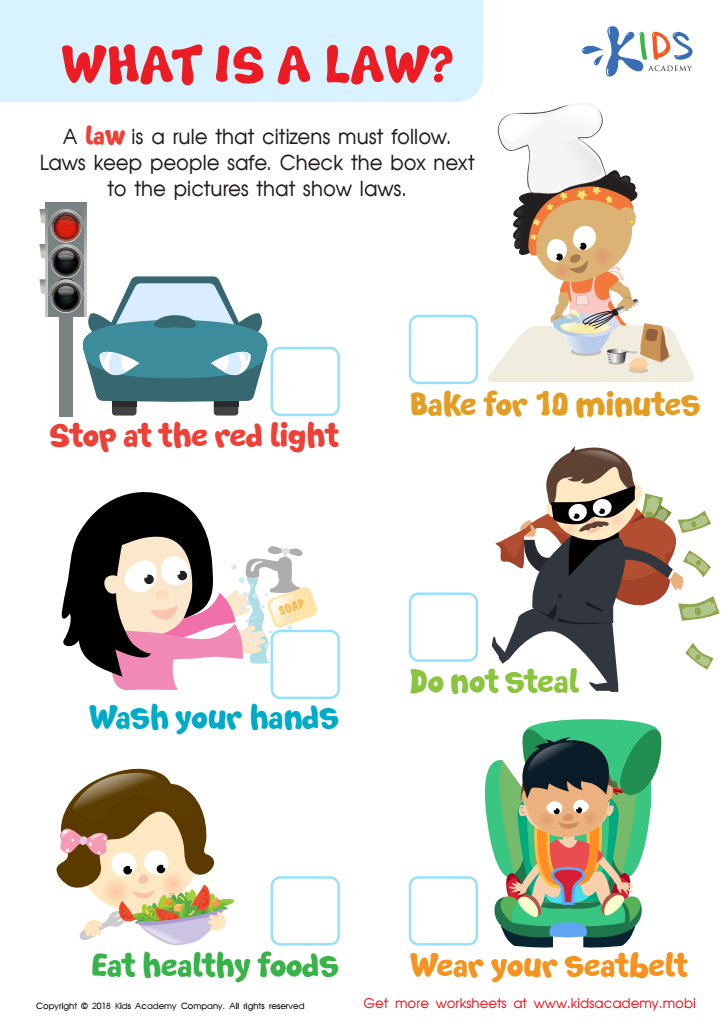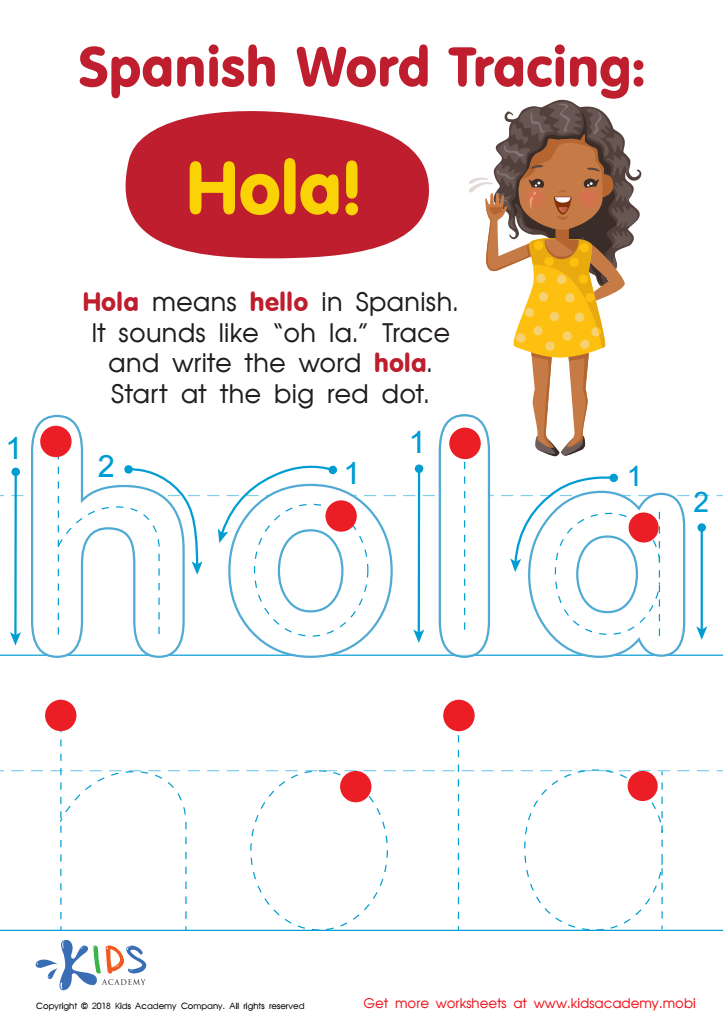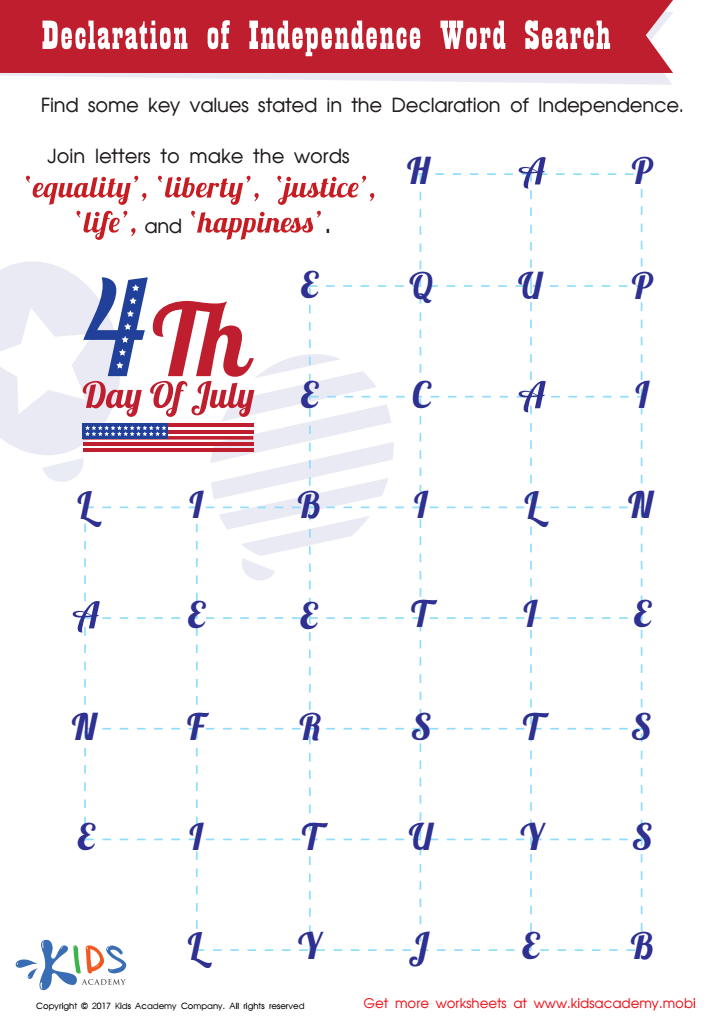Vocabulary enhancement Normal Governance and Civics Worksheets for Ages 4-9
3 filtered results
-
From - To
Boost your child's language and understanding of societal structures with our "Vocabulary Enhancement Normal Governance and Civics" worksheets, designed for ages 4-9. These engaging activities introduce essential civics concepts while expanding vocabulary through fun, age-appropriate exercises. Our printable worksheets cover topics such as community roles, government functions, and basic rights and responsibilities, fostering both social studies learning and language development. Perfect for classroom use or at-home enrichment, these worksheets give young learners the tools to grasp essential governance principles and convey them confidently. Unlock your child's potential in both vocabulary and civics with our expertly crafted resources.


What is a Law? Worksheet


Spanish Word Tracing: Hola Worksheet


Declaration of Independence Word Search Printable
Investing in vocabulary enhancement, governance, and civics for children ages 4-9 sets a critical foundation for their broader education and social development. At this formative age, children's brains are highly adaptable and receptive to new information. Expanded vocabulary improves their reading comprehension, listening skills, and overall academic performance. By exposing young learners to a rich variety of words, parents and teachers can significantly boost their cognitive abilities and prepare them for future learning challenges.
Understanding basic governance and civics is equally important. Even at a young age, children start to form notions about how communities work and their role as part of those communities. Introducing fundamental civics concepts—like fairness, rules, and leadership—helps children grasp the importance of societal structures and democratic participation. When they understand these concepts early, they are more likely to grow into responsible, informed citizens who can engage thoughtfully in their communities.
Furthermore, integrating these subjects can make learning more dynamic. Vocabulary lessons tied into stories about governance or community roles can spark curiosity and make abstract concepts tangible. This approach not only fosters academic growth but also cultivates a sense of social responsibility, ethics, and civic awareness from a very young age. By doing so, parents and teachers fulfill a dual role of educators and civic mentors.
 Assign to My Students
Assign to My Students









